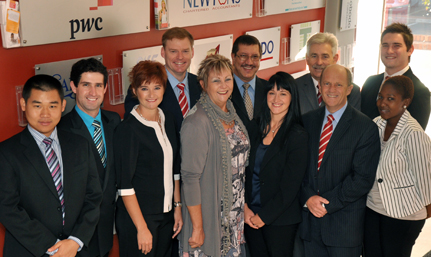Latest News Archive
Please select Category, Year, and then Month to display items
12 January 2024
|
Story Nonsindiswe Qwabe
|
Photo Sonia Small
 Since joining the UFS in 2008, Dr Grey Magaiza has worked extensively on approaches that can foster the socio-economic transformation of societies.
Since joining the UFS in 2008, Dr Grey Magaiza has worked extensively on approaches that can foster the socio-economic transformation of societies.
“The future should be one where communities can decide on their development agenda and futures. That’s the most important for me.” Dr Grey Magaiza, Deputy Director of the Centre for Gender and Africa Studies (CGAS) and Head of the Community Development programme on the Qwaqwa Campus, is passionate about capacitating communities to be agents of change and advancement. His vision for the future emphasises the empowerment of communities to take charge of their development by actively participating in decision making and the implementation of development projects that can improve their lives.
Since joining the UFS in 2008, Dr Magaiza has worked extensively on approaches that can foster the socio-economic transformation of societies. Over the years, he has crafted his research speciality into one that he is most proud of – being an interdisciplinary scientist immersed in the development of communities.
“I’m in a fortunate position of researching what I like. I say ‘fortunate’, because I’ve taken the time to understand what I’m passionate about, which is the overall field of rural livelihoods and livelihood futures – in short, community development. My research starts from an engaged university, understanding the elements that a university must use to enhance transformation and relevance to its immediate community in terms of development.”
One of the ways he has done this is by looking at social entrepreneurship as a development approach for young people in a rural setting. Through workshops with non-profit and civic organisations in Qwaqwa, Dr Magaiza has been helping these organisations to map out their needs and actively meet them through the involvement and support of external role players.
“We understand that communities are part of the national development agenda, but even that national agenda respects community knowledge and intentions and allows communities to shape their identity. A critical enabler of this is community organising. You bring back the capacity in communities to have dialogues on issues affecting them as spaces for engagement, knowledge exchange, and for people to just talk about their way forward.”
By enabling communities to define their development agenda, they can address their specific needs, challenges, and aspirations, he said. “When I look at livelihood futures, it’s quite an exciting aspect of my work – it’s like looking into a fortune tellers’ globe, because you’re not deciding for communities what they should do, but the communities themselves take those decisions.”
Achievement for Accounting students
2013-05-08
|
 |
Infront: Richard Yang (2013 Academic Clerk), Raymond Cramer (2013 Academic Clerk), Me Jana Lamprecht (Lecture), Prof RonellBritz (Chairperson: Centre for Accounting), Me LizelleBruwer (Lecture), Prof HendriKroukamp (Dean: Faculty of Economic and Management Science), ThembiKganane (2013 Academic Clerk).
Back: Prof CobusRossouw (Lecture), Mr KobusSwanepoel (Lecture), Prof Hentie van Wyk (Program Director: Centre for Accounting) and Robert Bode (2013 Academic Clerk)
08 May 2013 |
The B Acc Honours students of the Centre for Accounting have done very well in the Initial Test of Competence (ITC) examination of the South African Institute of Chartered Accountants (SAICA), when 60 out of 65 students passed. It represents a pass rate of 92%. The overall average pass rate nationally is 74% and 86% for those who wrote the professional examination for the first time.
The Centre for Accounting achieved an average pas s rate of 81% over the last three years. Up till now it is the largest number of UFS students that passed the professional examination in one year. The highest pass rate was achieved in 2008 when 95% of the UFS students passed.